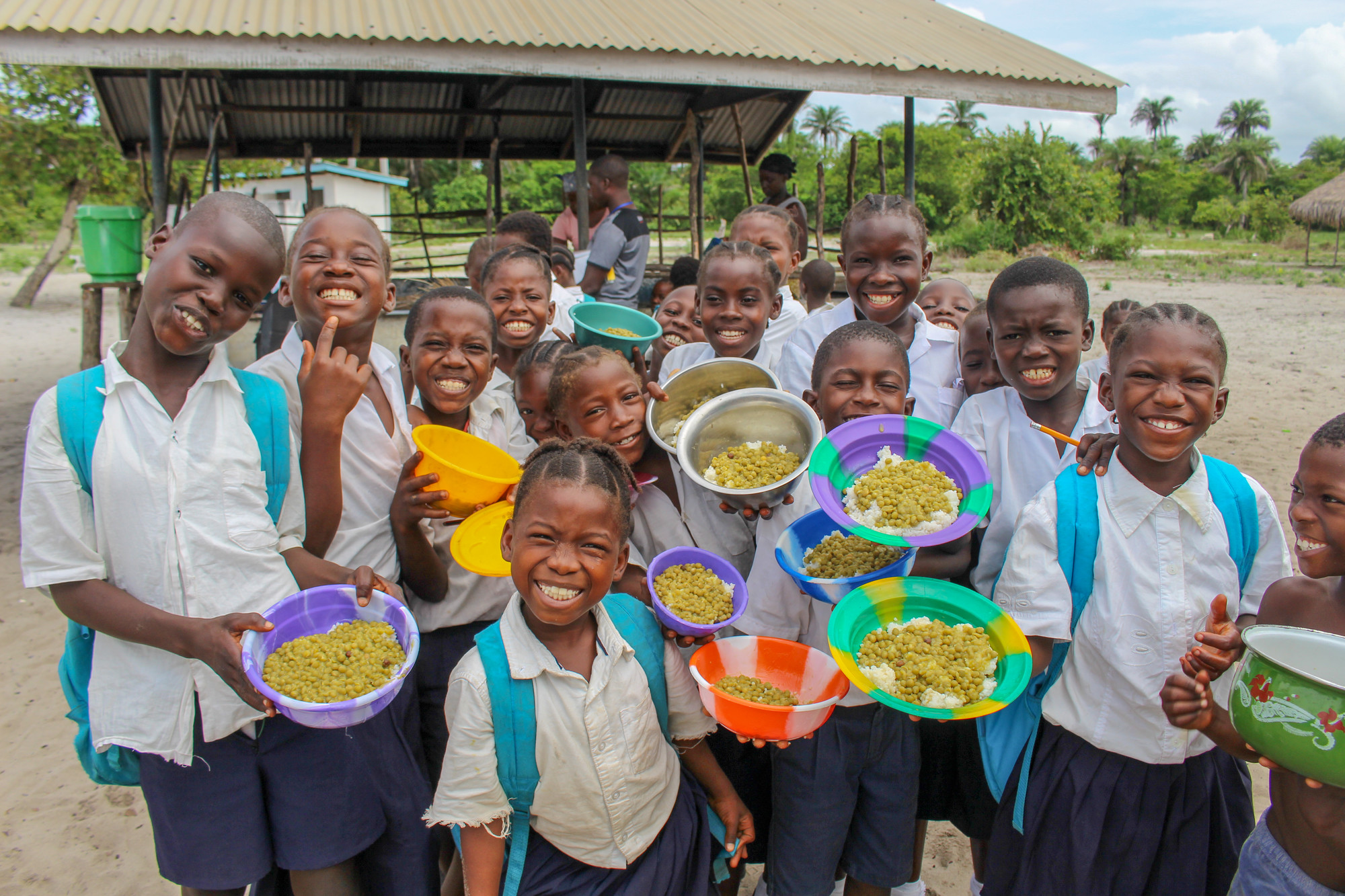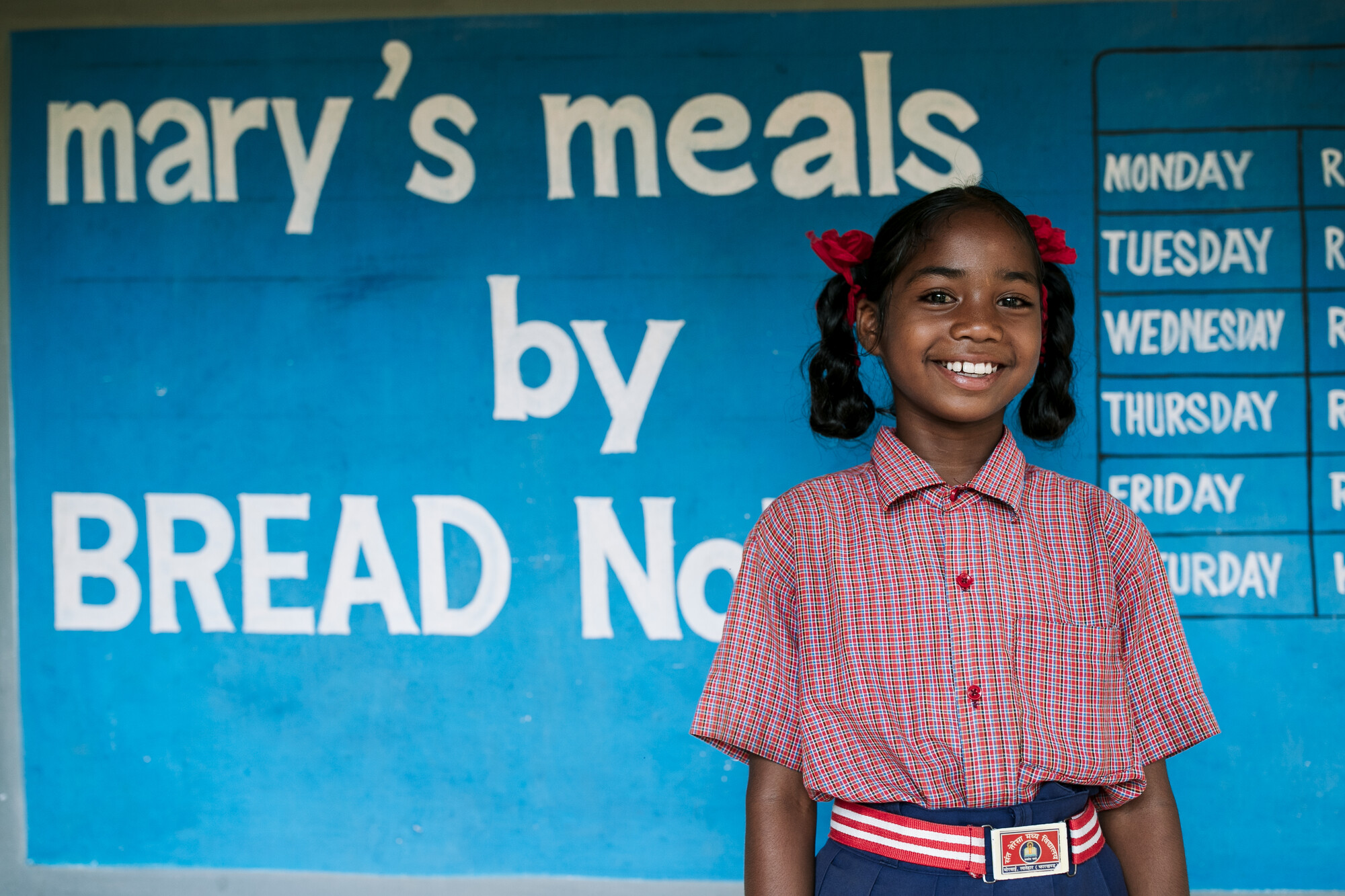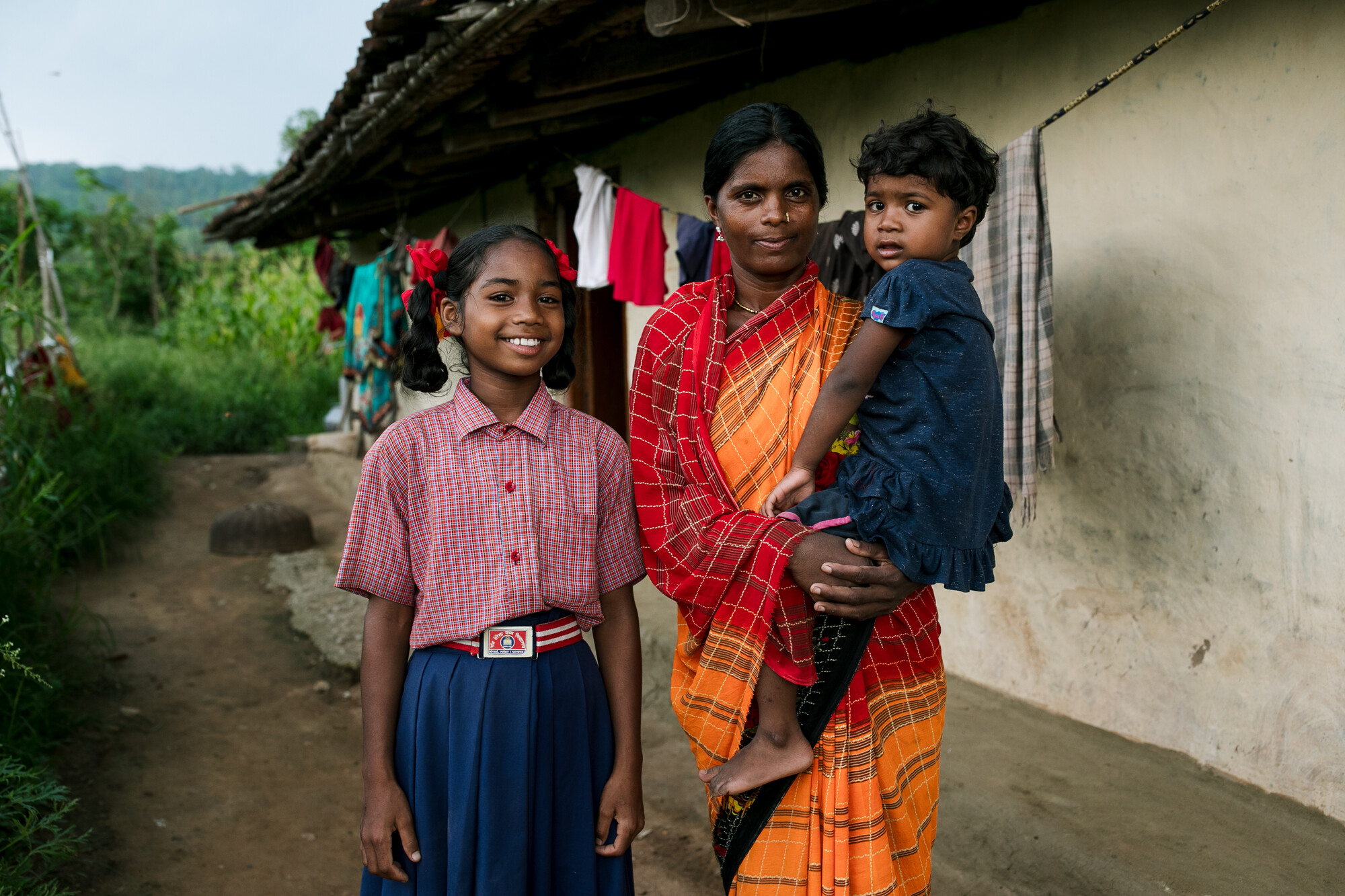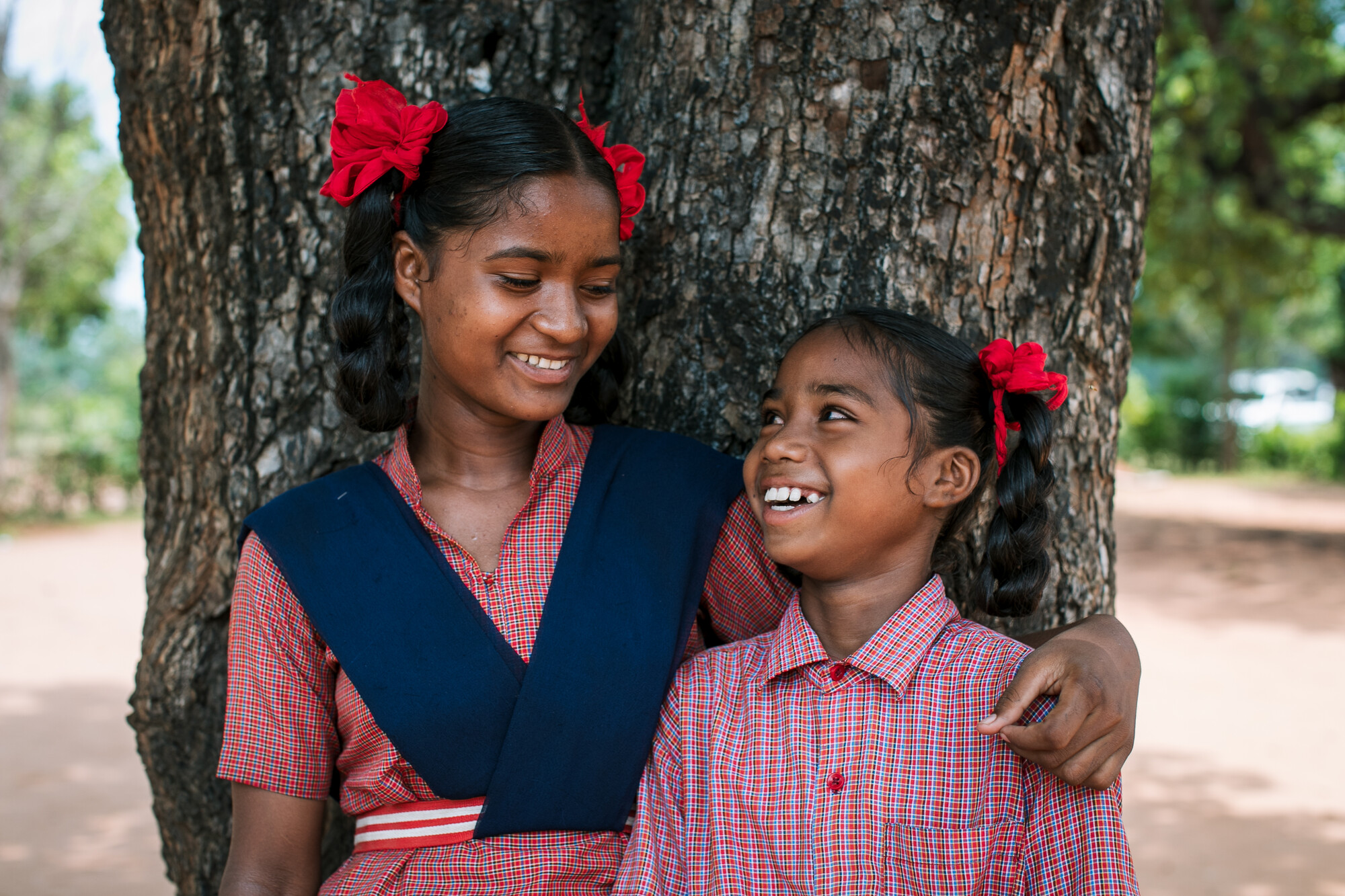A pledge that stands the test of time
Discover the transformative power of consistent school meals, and why ensuring no child goes a day without food in this world of plenty is at the forefront of Mary’s Meals’ agenda.
‘It really doesn’t matter how you feel this morning! What matters is your promise!’ Magnus MacFarlaneBarrow, GIVE.
If you attend a Mary’s Meals event, watch one of our short films, or strike up a conversation with someone involved in our work, it probably won’t be long before the word ‘promise’ is mentioned. You may even hear it two, three, or four times in any one conversation about what drives our school feeding program and its long-lasting impact for communities.
For more than 20 years, Mary’s Meals has been working in partnership with communities affected by poverty and food insecurity, promising to ensure that children receive a meal every day that schools are open. With more than 2.4 million children currently relying on our meals, it’s a large and important collective responsibility. But, why is this promise so fundamental to what we do and the children we serve?
Keeping our promise reduces child hunger in school
Children are at the centre of everything we do at Mary’s Meals and our first priority is that they are not hungry while they learn. Our independently verified research has found that Mary’s Meals reduces hunger for both boys and girls, and that the reduced hunger levels reported in the first year of children receiving our meals are also sustained over time. In Kenya – where our meals are served to pre-school and primary school children – we conducted research with children attending schools where our program was not yet operating and 74% of them reported being hungry at school. Following the introduction of our program, after three months of receiving meals every school day, that figure dropped to just 3%.
Keeping our promise improves access to education
We are currently facing the worst education crisis on record with an estimated 250 million children now out of school. Although the scale of the issue is not yet understood, the loss of learning is seismic and has deepened existing inequalities, with those who were already marginalized being the least likely to return to, re-enrol at, or access school. School meals are a proven incentive for children to attend school, and across our program, schools where our meals are served report increased enrolment. Not only have we found that our meals increase the number of children enrolling in school, but they also have an impact on attendance. In fact, when children begin eating Mary’s Meals, far fewer leave school early because of hunger. Community members also notice fewer children not in school.
Keeping our promise ensures children are ready to learn
Recent evidence shows that a child will lose more than eight weeks of learning time (roughly 70% of a term) if they arrive at school hungry once a week.
 In Liberia, where our meals are served to more than 100,000 children, we found that there was an 87% decrease in the number of children reporting that they missed school because of hunger. There was also a 22% decrease in the number of children missing school less often because of sickness. Leaving school early because of hunger also reduced significantly, by between 81 and 91% over three of our country programs. We know that worry about hunger disrupts concentration and hinders academic performance, and in Zimbabwe, in schools where our meals are served, our findings showed 92% of children never worry about being hungry while at school.
In Liberia, where our meals are served to more than 100,000 children, we found that there was an 87% decrease in the number of children reporting that they missed school because of hunger. There was also a 22% decrease in the number of children missing school less often because of sickness. Leaving school early because of hunger also reduced significantly, by between 81 and 91% over three of our country programs. We know that worry about hunger disrupts concentration and hinders academic performance, and in Zimbabwe, in schools where our meals are served, our findings showed 92% of children never worry about being hungry while at school.
What links each of these outcomes is the great need experienced in the communities where the meals are served. We focus our work on areas where poverty and poor access to education hinder the development of children, and where communities are battling with challenges such as climate change, conflict and food insecurity.
 In India, our meals are served to more than 65,000 children in schools and non-formal education centres, in collaboration with our trusted partner, BREAD. Most of the children we reach in non-formal centres are orphaned or abandoned lower caste children living in slums. They have very poor, limited diets and often suffer from illnesses as a result. The country is home to a quarter of all undernourished people worldwide, with the average family spending two-thirds of its daily income on buying a meal. Across the country, more than 3 million children are out of school, and over 70% are boys. Here, the same as in all the communities where our meals are served, the promise of a nutritious meal at school can be the difference between eating and going hungry. This acute need reminds us of the importance of our promise and fuels our determination to uphold it in even the most challenging circumstances.
In India, our meals are served to more than 65,000 children in schools and non-formal education centres, in collaboration with our trusted partner, BREAD. Most of the children we reach in non-formal centres are orphaned or abandoned lower caste children living in slums. They have very poor, limited diets and often suffer from illnesses as a result. The country is home to a quarter of all undernourished people worldwide, with the average family spending two-thirds of its daily income on buying a meal. Across the country, more than 3 million children are out of school, and over 70% are boys. Here, the same as in all the communities where our meals are served, the promise of a nutritious meal at school can be the difference between eating and going hungry. This acute need reminds us of the importance of our promise and fuels our determination to uphold it in even the most challenging circumstances.
Sonia lives in India and is one of five siblings. Even before tragedy struck, her family rarely had enough food for everyone, but they managed to get by with what they had.
 The sudden death of Sonia’s father turned her and her family’s lives upside down. As his earnings were the family’s only source of income, their situation deteriorated rapidly after his passing. Not only were they processing the loss of a father and husband, but battling hunger so acute that it impacted the health of Sonia and her siblings. The family’s situation was so desperate that the children stopped attending school as their mother was forced to find work and earn what she could to keep the family alive. However, finding work was difficult for Sonia’s mom and the children frequently went without food and became ill.
The sudden death of Sonia’s father turned her and her family’s lives upside down. As his earnings were the family’s only source of income, their situation deteriorated rapidly after his passing. Not only were they processing the loss of a father and husband, but battling hunger so acute that it impacted the health of Sonia and her siblings. The family’s situation was so desperate that the children stopped attending school as their mother was forced to find work and earn what she could to keep the family alive. However, finding work was difficult for Sonia’s mom and the children frequently went without food and became ill.
Sonia says: “There was no rice, or other food at home. There were days we wouldn’t eat – it made me feel very sad. The whole family went hungry.”
Just a short distance away from their small forest hometown of Morwai, staff and volunteers at St Theresa School were offering students a warm, nutritious meal each day thanks to the partnership between BREAD and Mary’s Meals. Not long after word circulated about Sonia and her family’s desperate situation, nuns from the convent school reached out to the family and extended an invitation to Sonia and her siblings to attend. The nuns could see the toll that providing for five children was having on their mother and offered Sonia a place at the boarding house where they would look after her outside of lessons.
 Sonia loves being close to her best friend and is enjoying learning English. The meal she receives from Mary’s Meals is also a hit as it gives her the fuel she needs to make the most out of her lessons.
Sonia loves being close to her best friend and is enjoying learning English. The meal she receives from Mary’s Meals is also a hit as it gives her the fuel she needs to make the most out of her lessons.
She says: “I have a best friend called Rupal – I love to share toys and food with her and play when we are not studying. I enjoy eating Mary’s Meals. It is very tasty and energises me to study well.”
The promise of consistent meals at school is not just a fundamental right; school meals can change the course of a child’s life. Sonia might never have set foot in a classroom again after the death of her father, and the threat of hunger-driven illness could have been an ever-present danger to her and her siblings’ lives. Thanks to the amazing global movement of people dedicating time and resources to Mary’s Meals, we are helping to keep children healthy and happy in school and on track for a more certain future.
Just $31.70 feeds a child for a whole school year.
